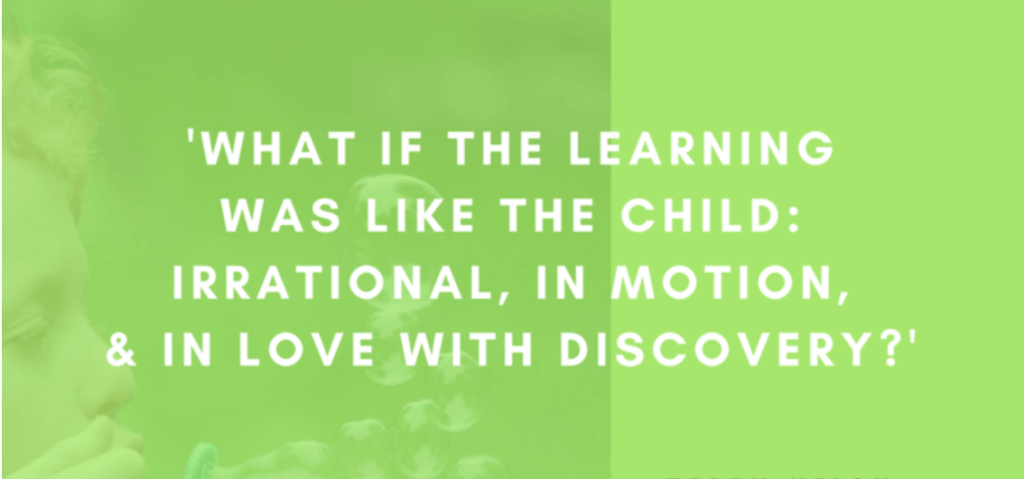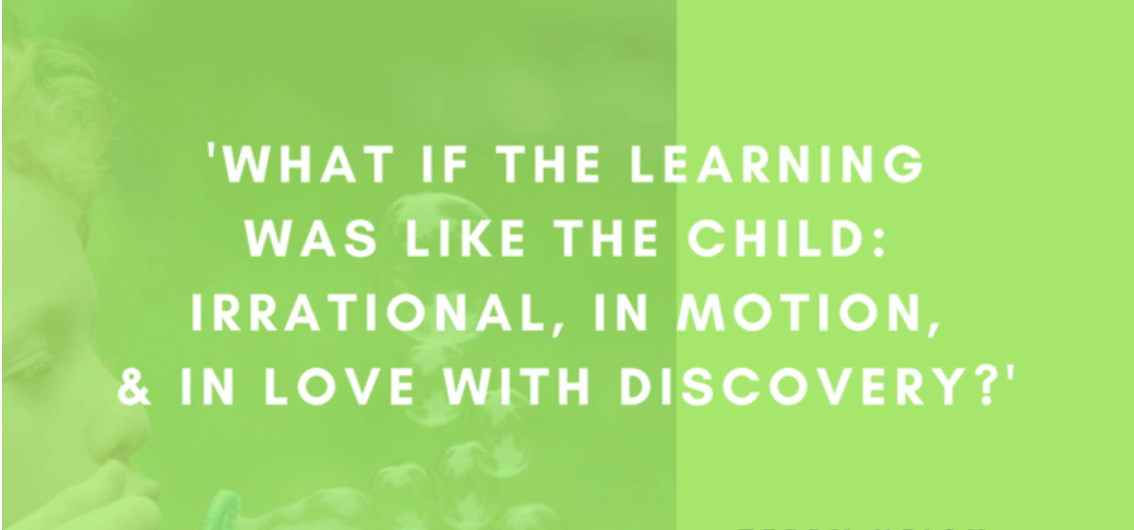
Formal learning is a humbling endeavor.
As planners, designers, implementers, and general janitors of public and private educational systems, we have the insurmountable task of overcoming children’s natural tendency to play, rebel, and self-direct in the hopes of providing them with a “good education.” Reading, writing, arithmetic, etc.
There is nothing wrong with this. It is good by any standard. Our intentions are noble, our efforts are extraordinary, and certainly many children, especially those from disadvantaged environments, learn better than anything they might otherwise receive.
But there is an unfortunate, dark side to the formal learning process, especially when you cram 800 people into a school, 32 into a classroom, and “put the teacher in charge”.
This is an aspect that is more concerned with accountability than anything else – meaning that students are accountable to teachers, teachers are accountable to principals, principals are accountable to supervisors, supervisors are accountable to state agencies, and everyone is accountable for a number of “motivational” and/or punitive measures.
The end result may be a learning climate in which spontaneity, curiosity, and learner self-direction are secondary to the proper “research-based” literacy strategy of “making kids proficient” –This is an important loss of the “childishness” of learning.
It is in this context that I watched the following video by Adora Svitak, who eloquently discusses the role of “immaturity” in great achievement (please tell me this child is trained or I hope she is more “naïve” herself! “). Regarding “childish” behavior and “immaturity,” she explains.
Then again, who’s to say that certain types of irrational thinking aren’t what the world needs? Maybe you’ve had grandiose plans in the past, but stopped yourself, thinking, “That’s impossible,” or “That’s too expensive,” or “That’s not good for me.
“For better or worse, our children are not hindered too much in thinking about the reasons why they don’t do something. Children can be full of inspiring ambitions and hopeful ideas. For example, I hope no one goes hungry, or that everything is a utopia of freedom. How many of you still dream and believe in that possibility? Sometimes the knowledge of history and the past failures of utopian ideals can be a burden, because you know that if everything was free, then food reserves would be depleted and scarce, leading to chaos. On the other hand, we kids still dream of perfection.
“That’s a good thing, because in order for anything to be a reality, you have to dream it first.”
It’s easy to take this argument a step further and wonder what education would look like if it could truly lose itself in learning and become fully immersed in content and community. Standards? Pretty good. Assessments? Great, but standardized assessment without standardized learning.
What if learning was like children: irrational, in constant motion, and in love with discovery?
